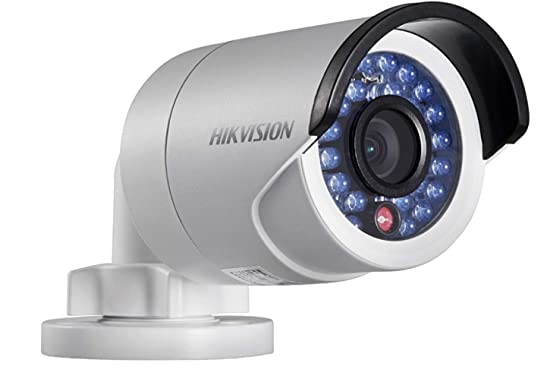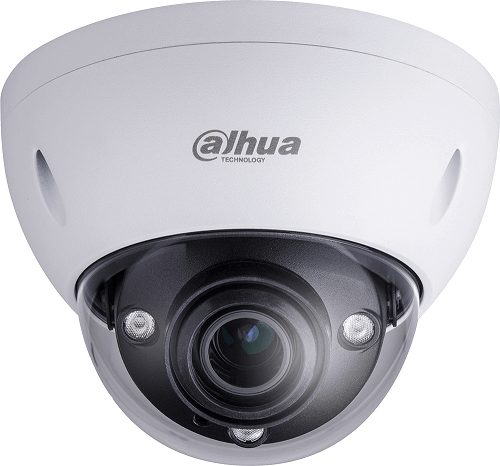Whether it is your home or office, having security cameras is always a great idea for security purposes. And if you want a versatile CCTV camera, then going with an IP camera can be a great idea since they can be accessed from anywhere with ease. Those of you who are in the market for a new IP camera can find a lot of options for the same.
But if you want the absolute best, both Hikvision and Dahua can be great options for many. And since you will be going with just one out of these, we are here with a complete comparison on Hikvision vs Dahua so that you can simply go through this comparison till the end and pick the right security camera for your needs.
Outline
ToggleAbout Hikvision
Before taking a look at the differences between these two options, let’s learn more about Hikvision and what all it offers to the user. Hikvision is known for offering a wide range of surveillance products which are known for offering great video quality. You can find both home as well as industrial grade options from Hikvision when it comes to security cameras. With its newer models, Hivision is even working on AI based solutions when you are talking about surveillance cameras.
About Dahua
Dahua is another popular and a mainstream option for those who are looking for surveillance cameras. Not only does Dahua make cameras, but it even offers other solutions like DVRs, storage options, control modules, displays, and much more. In other words, if you want a complete surveillance management system, then Dahua can be the perfect option for your needs.
Comparing Dahua vs Hikvision
Now that you know more about both Dahua and Hikvision, you might be interested in knowing more and seeing how well these two options compare to each other. Hence, we are here with a complete comparison between Hikvision vs Dahau which can be great for picking up the right one.
Also check –
The Main Differences between Hikvision vs Dahua
Even though there are a lot of differences between Hikvision and Dahua, we are here with the following ones which are the major differences between these two so that you can easily choose the right one after considering the following points:
1. Hardware
Before considering any of the software features offered by either of these cameras, checking their hardware specifications is much more important. You will be glad to know that both the Hikvision and Dahua cameras come with 4 MP camera sensors for pretty great image quality. In fact, they also have the 1/3 inch sensor for decent low light performance. One place where they differ in their focal lengths as Hikvision offers 4 mm and 6 mm lenses and Dahua comes with 2.8 mm, 3.6 mm, and 6 mm.
2. Protocol Support & Bitrate
Starting with the software features of these surveillance cameras, you first need to check their protocol support since these are IP cameras and without having proper protocol support, connecting them to the internet won’t be easy/ Thankfully, both Hikvision and Dahua cameras support ONVIF and RTSP protocols for easily using them as IP cameras. As for their bitrate, even though a 6 Mbps camera is enough for an IP camera, Hikvision is rated for 16 Mbps and Dahua is rated for 10 Mbps where both of them are quite great.
3. Motion Detection
Because Hikvision and Dahua cameras are made for surveillance, you would want them to alert them in case of any intrusion in your property. For the same, both Hikvision and Dahua support motion detection. Not only that, but Dahua even supports face detection and missing object detection which can be quite handy for automated surveillance.
4. Sensor Size and Low Light Ability
One of the biggest issues with surveillance cameras is that their video quality becomes quite bad at night or in other low light situations. Hence, checking the sensor size and the low light ability offered by them is quite important. This is due to the reason that a larger sensor size usually results in a better low light performance. Fortunately, as mentioned earlier, both Hikvision and Dahua come with 1/3 inch sensors which are perfect for offering great low light performance.
5. ONVIF and RTSP Protocol
As mentioned earlier, both Hikvision and Dahua support ONVIF as well as RTSP protocols. If you want to know more about these, then you will be glad to know that ONVIF allows your camera to be used with any third party equipment and NVR. As for RTSP, it is ideal for accessing your camera’s video stream directly over the internet.
6. Sound Recording
Those of you who are installing a surveillance camera in your home might also want sound recording along with video recording especially if you are installing a camera at your front door. Even though a few Hikvision cameras support sound recording, Dahua offers the same in many more models for versatility.
7. Night Time Color
Apart from the detail offered by your surveillance camera in low light, you should also check the colors offered by it. This ensures that seeing everything clearly in the surveillance footage is easy. For the same, Hikvision is slightly better in terms of color accuracy and easy to monitor footage.
8. Camera Lens Option
While the sensor of a surveillance camera determines its video quality and low light performance, the camera lens tells you about the field of view offered by it. Since you would want everything to be visible in your surveillance footage at once, going with a lower focal length for a higher field of video is always recommended. Thankfully, both Hikvision and Dahua offer great camera lens options. While Hikvision offers 2.8 mm, 4 mm, 6 mm, 8 mm, and 12 mm lens options, Dahua offers 2.8 mm 3.6 mm, and 6 mm lens options.
9. Minimum Illumination
The minimum illumination rating of a surveillance camera tells you about the minimum amount of light required by a camera for recording video. Both of these cameras perform the same in this regard thanks to their low light performance.
10. Weight and Dimensions
Since you may want to mount a surveillance camera on the ceiling, both Hikvision and Dahua offer lightweight models for easy installations. As for their dimensions, Hikvision cameras have dimensions of about 4.4 inch x 3.2 inch and Dahua offers dimensions of 4.33 inch x 3.19 inch making both of them very similar in their size.
11. The Apps
As an IP camera allows you to access their video stream from anywhere using the internet, you might want to do the same from your smartphone. Therefore, both Hikvision and Dahua offer smartphone apps for both Android and iOS devices making them perfect IP cameras for everyone.
Conclusion
Upon checking this complete comparison and all the various factors stated here, you must have a pretty good idea about both Hikvision and Dahua in terms of what both of these offers. While both of them are great security cameras, they do have their own differences. Even though there is no clear better option between them, you can certainly go with the right one as per your needs and requirements by going through the differences present above in this comparison for Hikvision vs Dahua. If you have gone through the complete comparison for Hikvision vs Dahua given up above, make sure to share your thoughts in the comments section. You can also post any questions down there if you have any!



